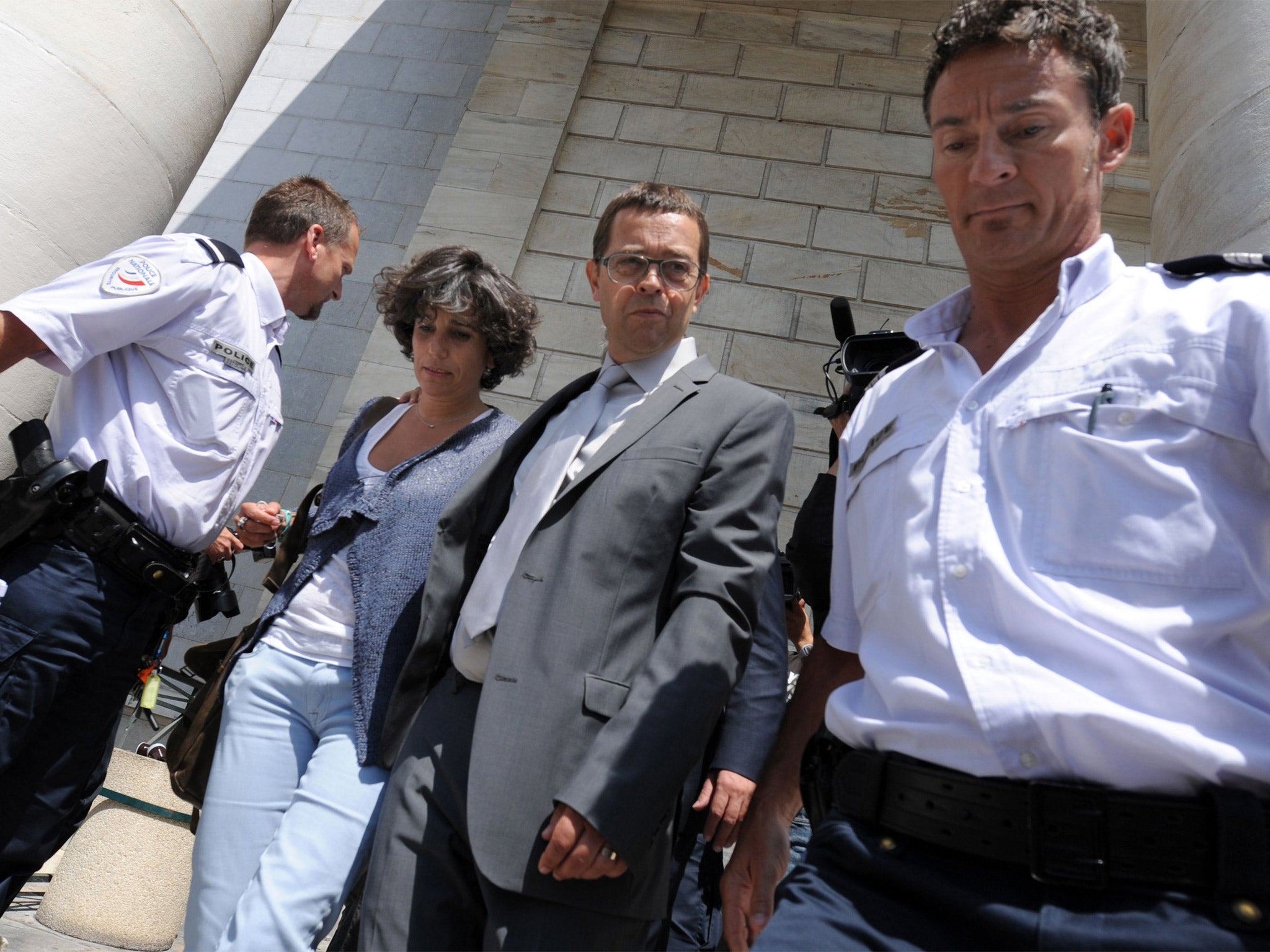Hero or villain? ‘Poison doctor’ trial reopens French debate on euthanasia
Dr Nicolas Bonnemaison is accused of poisoning seven patients who were hours from death in order to spare them intense suffering

Your support helps us to tell the story
Our mission is to deliver unbiased, fact-based reporting that holds power to account and exposes the truth.
Whether $5 or $50, every contribution counts.
Support us to deliver journalism without an agenda.

Louise Thomas
Editor
A trial has opened in France which will relaunch an anguished national debate on the difference between medical compassion and murder.
Dr Nicolas Bonnemaison, 53, is accused of poisoning seven patients who were hours from death in order to spare them intense suffering. Relatives of many of his alleged victims believe he should be regarded as a hero rather than a villain. The state prosecution service says the doctor knowingly crossed a “red line” between palliative care and homicide.
Defence lawyers hope the case will become a trial of the ambiguous French laws on euthanasia, which President François Hollande promised to clarify during his campaign two years ago. A string of doctors will give evidence that Dr Bonnemaison’s actions are a common, if unspoken, medical practice. They will include Dr Bernard Kouchner, a founder of Médécins sans Frontières and a former French Foreign Minister.
Benoît Duci-Ader, the doctor’s lawyer, said before the start of the trial in Pau, in south-west France: “Both defence and prosecution accept this should not be just a trial but a debate on an important social issue. Yes, it is the trial of Nicolas Bonnemaison. But it is also the trial of how we deal with the end of life.”
Dr Bonnemaison, who has already been struck off, has admitted giving seven patients lethal doses of the sedatives Hypnovel and Norcuron when they were in great pain and hours from death. He failed to record the prescriptions in case notes, attracting the attention of nursing staff who made a formal complaint.
Under pre-trial questioning by an investigating magistrate, Dr Bonnemaison admitted that he had failed to seek a “collegiate” decision by group of his fellow doctors at the Bayonne hospital, as recommended by the existing French law. He said the law, which dates from 2005, was unworkable. “It is only deep inside himself that a doctor can know whether such a decision is the right one,” he said. “It is between him and his conscience.”
In pre-trial arguments, the state prosecution service rejected this argument. “No one has a power of life or death over another person,” the prosecution said. If convicted of “poisoning vulnerable people”, Dr Bonnemaison could be jailed for life.
Under the existing law, a group of doctors is permitted to take a “passive” decision not to extend the life of a patient who is dying in great pain. During his election campaign in 2012, President Hollande said that he accepted that this law was too vague and promised to draft a new one.
A petition, signed by 60,000 people, has called for Dr Bonnemaison to be acquitted and for the law to be changed. Signatories include many relatives of the seven people whose lives the doctor cut short by a few hours. No relative has lodged a complaint. One of the sponsors of the petition is Patricia Dhooge, whose husband Fernand’s life was shortened by Dr Bonnemaison in 2011.
“I wasn’t going to say, ‘Kill my husband.’ But there was a mutual understanding,” she said. “I am sure that if there was any hope, Dr Bonnemaison would not have done it. He wanted to end my husband’s suffering. That’s all that I remember.”
Join our commenting forum
Join thought-provoking conversations, follow other Independent readers and see their replies
Comments